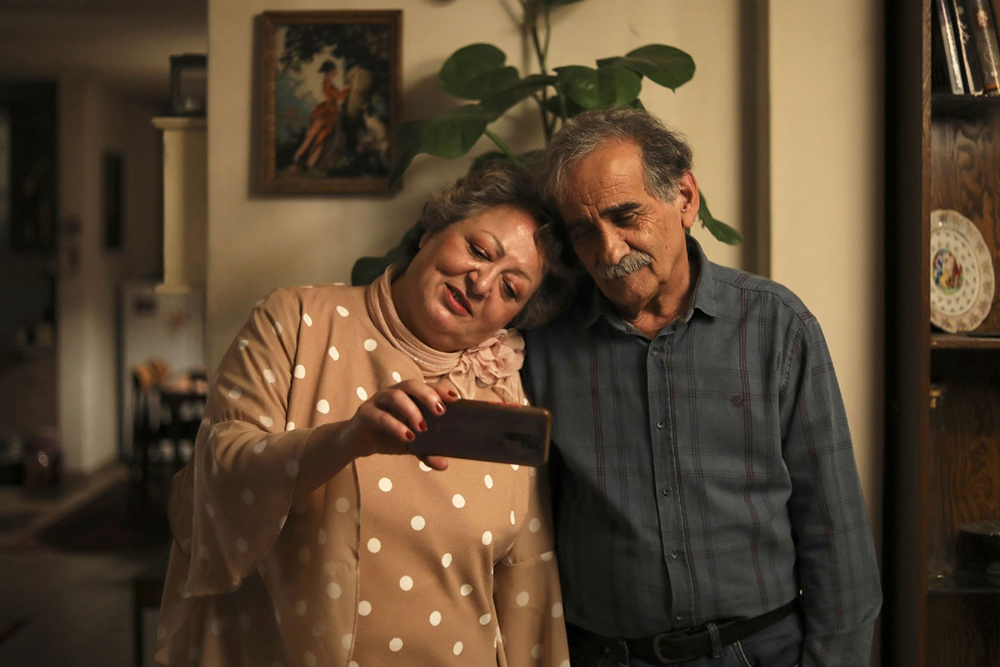Iranian filmmakers face renewed travel bans: A deeper look
A turbulent journey for Iranian directors
The Iranian directorial duo, Maryam Moghaddam and Behtash Sanaeeha, have faced significant obstacles in their filmmaking journey. Earlier this year, they were barred from attending the Berlin Film Festival to launch their film, My Favourite Cake. Despite having their passports returned, they have been subjected to repeated travel bans, highlighting the ongoing challenges faced by artists in Iran.
A thwarted trip to Sweden
Last week, Moghaddam, who holds dual Swedish-Iranian citizenship, was set to fly to Sweden to visit her family and attend the Swedish premiere of My Favourite Cake. However, her plans were abruptly halted when her passport was confiscated at Tehran’s airport. In a heartfelt Instagram post, she shared her frustration and confusion, stating, ”My passport was confiscated at Tehran’s airport and I was informed that we (me and Behtash Sanaeeha) are barred from leaving the country again.”
The psychological toll
Moghaddam expressed her distress over the situation, questioning the motives behind the authorities’ actions. “Is it because of a hidden agenda to mentally and psychologically abuse us?” she pondered. The director also criticized the recently elected Iranian President, Masoud Pezeshkian, accusing him and his administration of hypocrisy and deception. “It is crystal clear to any intelligent Iranian that you and your comrades are not this nation’s company and friends,” she wrote.
A controversial film
My Favourite Cake has stirred controversy in Iran due to its portrayal of a 70-year-old woman who revitalizes her love life while living alone in Tehran. The film features scenes of a woman not wearing the mandatory hijab, people drinking alcohol, and dancing, which have sparked outrage among conservative factions. Despite the backlash, the film has been widely sold by France’s Totem Films and is being rolled out in several European countries, including the U.K.
The broader context
The challenges faced by Moghaddam and Sanaeeha are not isolated incidents but part of a broader pattern of censorship and repression in Iran. The country’s film industry has long been a battleground for cultural and political expression, with filmmakers often finding themselves at odds with the authorities. The repeated travel bans imposed on Moghaddam and Sanaeeha underscore the precarious position of artists in Iran, who must navigate a complex landscape of censorship and political pressure.
The power of cinema
Despite these challenges, cinema remains a powerful medium for storytelling and social commentary. Films like My Favourite Cake offer a glimpse into the lives and struggles of ordinary Iranians, challenging stereotypes and fostering empathy. For cinema enthusiasts, the film’s journey from conception to international screenings is a testament to the resilience and creativity of filmmakers who continue to push boundaries and defy censorship.
Personal reflections
As a cinema and TV series enthusiast, the story of Moghaddam and Sanaeeha resonates deeply. It serves as a reminder of the power of storytelling and the importance of artistic freedom. The ability to tell stories that challenge societal norms and provoke thought is a fundamental aspect of cinema. Films like My Favourite Cake not only entertain but also inspire and educate, offering new perspectives and fostering a deeper understanding of the human experience.
Looking ahead
The future remains uncertain for Moghaddam and Sanaeeha, but their determination and passion for filmmaking are evident. As they continue to navigate the challenges posed by the Iranian authorities, their story serves as a powerful reminder of the importance of artistic expression and the enduring impact of cinema. For those of us who cherish the art of filmmaking, their journey is a poignant example of the resilience and courage required to bring important stories to the world stage.
In the ever-evolving landscape of cinema, the voices of filmmakers like Moghaddam and Sanaeeha are crucial. Their work not only enriches our understanding of different cultures and societies but also underscores the universal themes of love, resilience, and the quest for freedom. As we continue to support and celebrate their contributions, we reaffirm our commitment to the power of storytelling and the transformative potential of cinema.

 Italian
Italian






